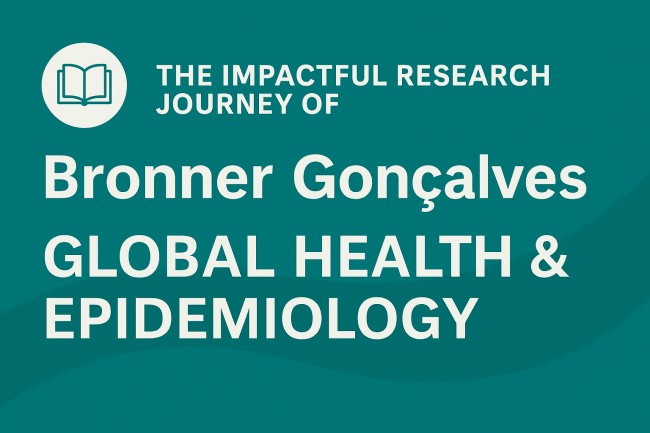The Impactful Research Journey of Bronner Gonçalves

In the field of global health and epidemiology, the name Bronner Gonçalves has become increasingly recognised for his rigorous research and impactful contributions. His work spans infectious diseases, maternal and infant health, and advanced methods of causal inference. With a particular focus on Group B Streptococcus (GBS) and disease progression analysis, his studies continue to shape policy discussions, guide prevention strategies, and inspire future investigations.
Who is Bronner Gonçalves?
Academic and Professional Background
Bronner Gonçalves is a researcher in epidemiology and public health, with academic affiliations in the United Kingdom. His role within the Faculty of Health and Medical Sciences at the University of Surrey has placed him at the centre of critical projects addressing disease burdens across regions and populations. His professional journey demonstrates both a dedication to methodological precision and a passion for producing evidence that improves lives globally.
Areas of Specialisation
At the core of Gonçalves’s expertise lies the study of infectious disease epidemiology. He is particularly focused on understanding maternal and infant infections, causal pathways of disease progression, and evaluating the cost-effectiveness of preventive measures. His research extends beyond numbers and models—it addresses pressing health inequities faced by low- and middle-income countries.
Research on Group B Streptococcus
Understanding GBS and Its Burden
Group B Streptococcus is a bacterial infection that can affect pregnant women and newborn infants, often with severe consequences. For decades, the true global burden of GBS was underestimated, leading to gaps in prevention and policy. Bronner Gonçalves has been instrumental in correcting these misconceptions.
Landmark Global Health Paper
One of his most widely acknowledged works appeared in The Lancet Global Health, where he and colleagues presented comprehensive estimates of the global and regional burden of GBS during pregnancy and infancy. The findings revealed a higher than previously thought number of infections, stillbirths, and infant deaths associated with this bacterium.
This research demonstrated that GBS is not only a clinical problem but also a pressing public health issue. The work highlighted the urgent need for preventive strategies, particularly in countries with limited healthcare infrastructure.
Vaccine Cost-Effectiveness
A crucial part of Gonçalves’s GBS research examined the potential of maternal vaccination as a solution. His studies showed that a vaccine would not only save lives but also be cost-effective, particularly in low- and middle-income settings where the burden of disease is highest. Such work plays a pivotal role in informing global health organisations and policymakers.
Methodological Contributions
Causal Inference in Epidemiology
Beyond infectious disease estimates, Bronner Gonçalves has contributed significantly to the methodological foundations of epidemiology. His research on causal approaches to disease progression analyses has provided new frameworks for understanding how exposures influence health outcomes over time.
Preventable Fraction and Disease Pathways
He has also introduced innovative ways of interpreting the “preventable fraction” of diseases—an approach that clarifies how much illness could realistically be avoided through targeted interventions. These insights are particularly useful when designing public health policies and evaluating intervention strategies.
Broader Implications of His Work
Influence on Policy and Practice
The research of Bronner Gonçalves does not remain within academic circles. His findings on maternal and infant health resonate with international organisations, ministries of health, and non-governmental organisations working to reduce preventable deaths. By quantifying disease burden and exploring cost-effective interventions, his work provides a strong evidence base for investment in vaccines and public health programmes.
Commitment to Equity
An important theme in his research is equity. By highlighting the disproportionate burden of GBS in low-resource countries, Gonçalves brings attention to health inequalities that demand urgent global action. His scholarship reflects a commitment to ensuring that scientific progress benefits populations most in need.
Looking Ahead
Future Research Directions
As global health challenges evolve, so too will the research agenda of Bronner Gonçalves. His focus on infectious diseases, causal inference, and preventive strategies suggests continued contributions to both methodology and applied public health. With new vaccines in development and advances in epidemiological modelling, his expertise will remain central to the debate on how best to allocate resources for maximum impact.
Inspiring the Next Generation
By combining technical precision with a deep sense of responsibility, Gonçalves sets an example for emerging researchers. His work illustrates how scientific inquiry can be both academically rigorous and socially relevant, bridging the gap between data and real-world outcomes.
Conclusion
The career of Bronner Gonçalves represents the best of modern epidemiology: a blend of methodological innovation, global perspective, and commitment to equity. From his groundbreaking research on Group B Streptococcus to his advancements in causal inference, his contributions are shaping health policy and saving lives. As the world continues to confront infectious diseases and health disparities, the work of Bronner Gonçalves will remain a guiding light in the pursuit of healthier, fairer societies.



